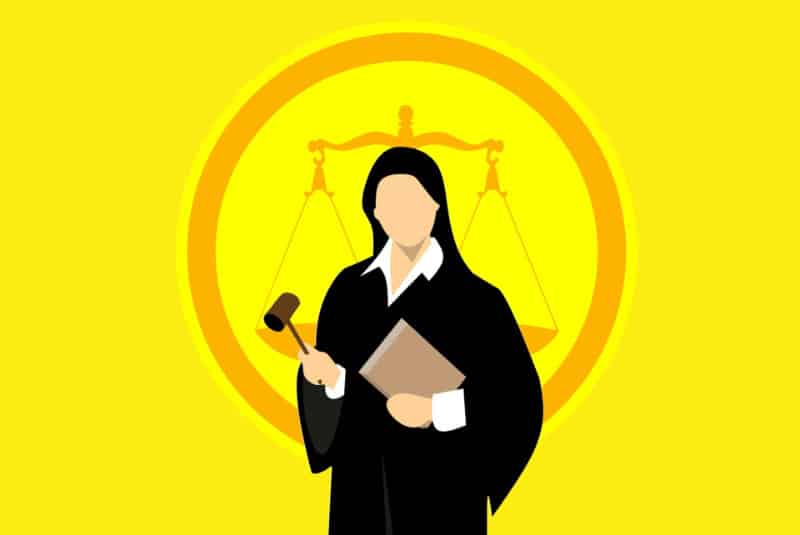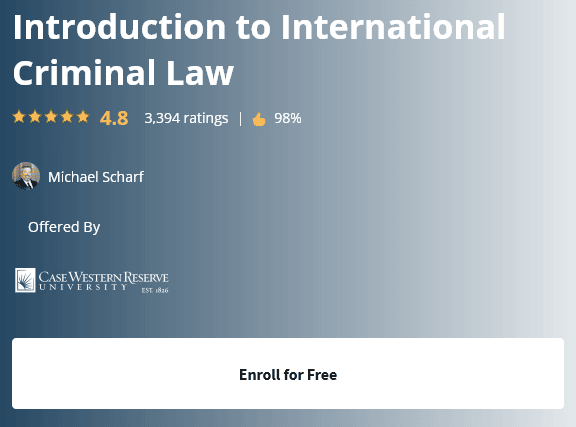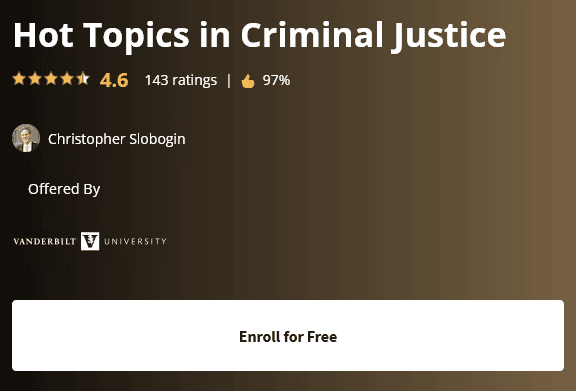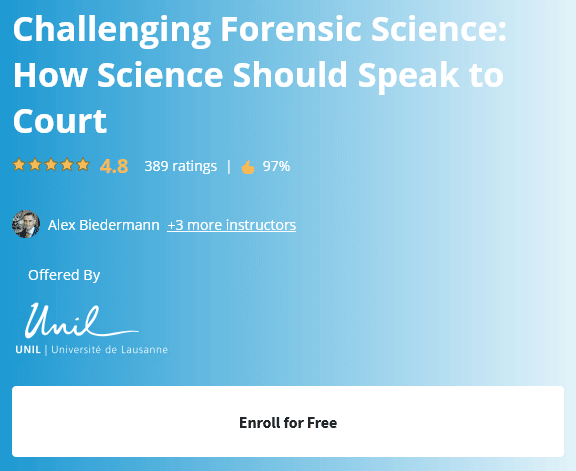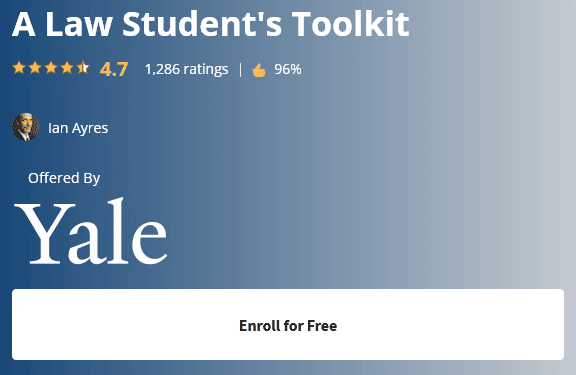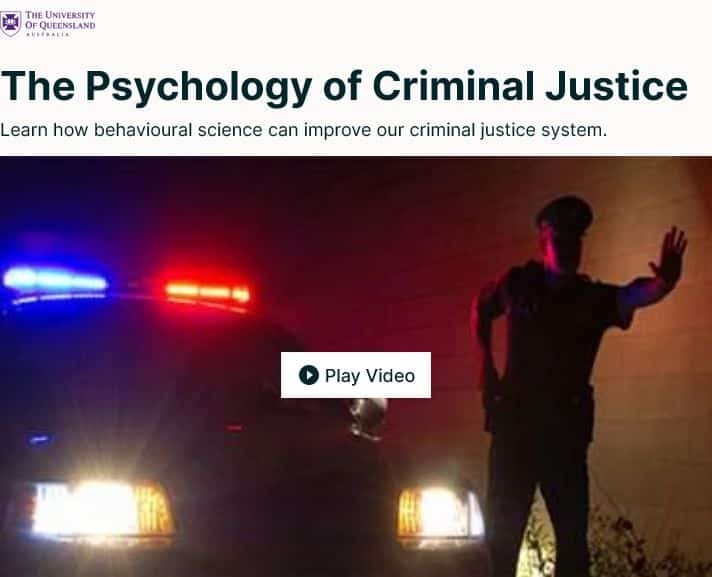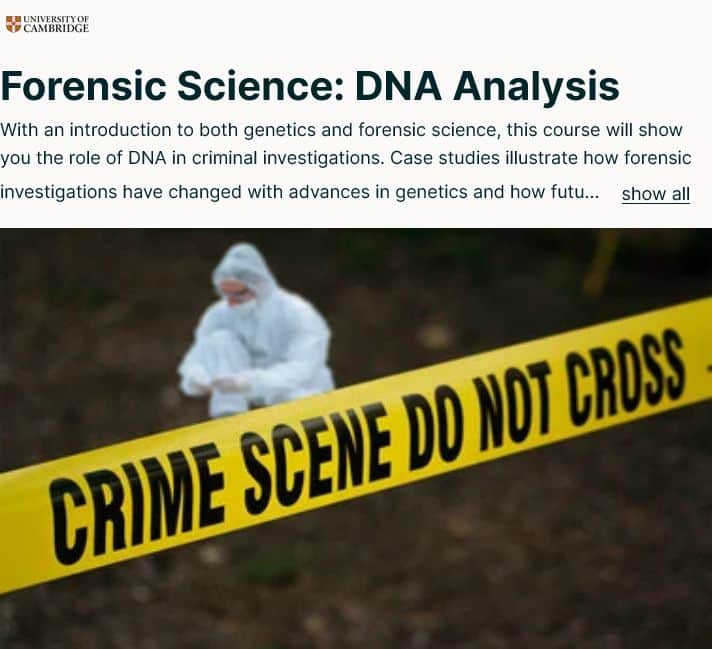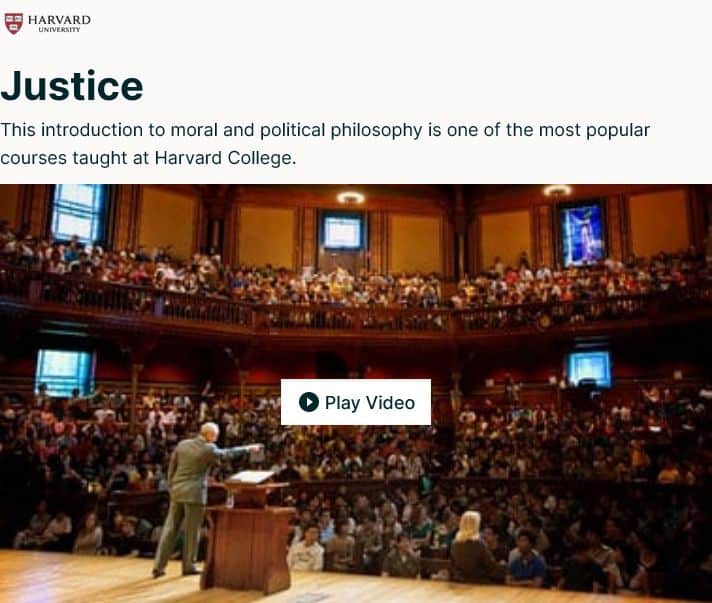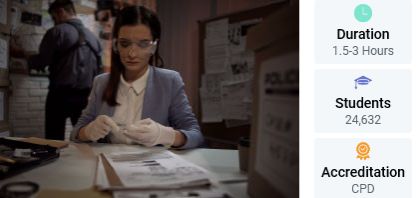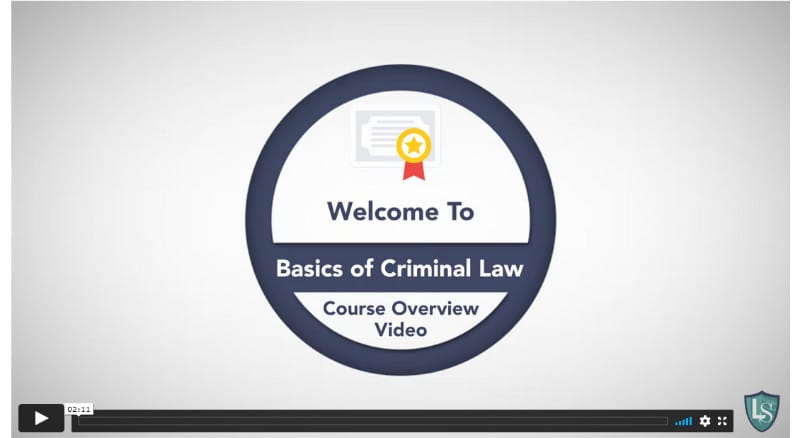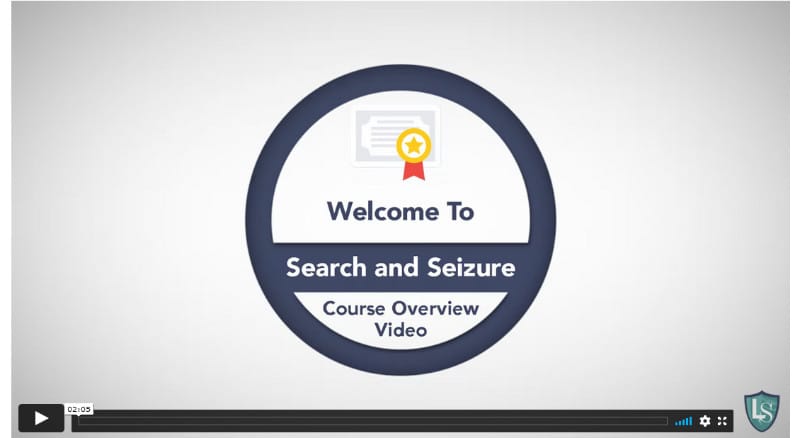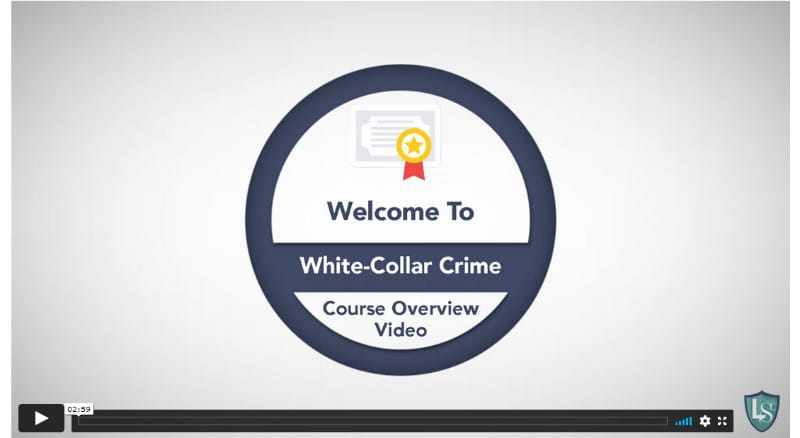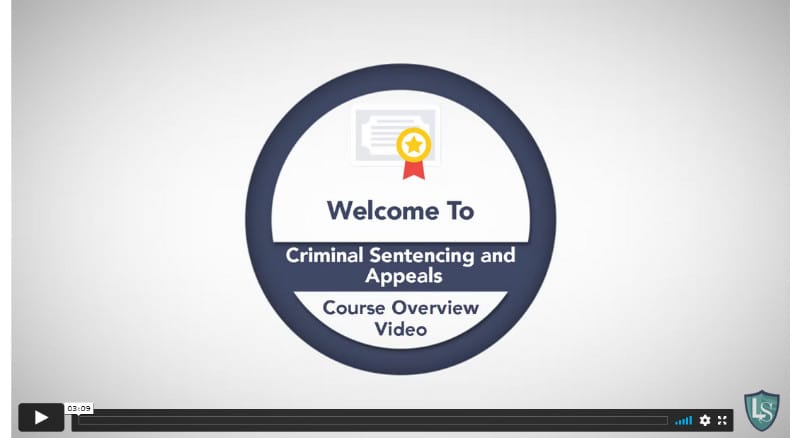Do you want to learn more about criminal justice but don’t want to spend hundreds of dollars on a course? Check out these free online criminal justice courses. You can get a taste of what criminal justice is all about and potentially start down the path to a career in the field.
Course topics include forensic science, law enforcement, International Criminal Law, and more. So whether you’re just curious about criminal justice or you’re looking for ways to further your education, these courses are a great option.
Free Online Courses Criminal Justice
Introduction to International Criminal Law
Introduction to International Criminal Law is a free eight-week course that covers a wide range of topics related to criminal justice. The course begins with a discussion of peace versus justice, exploring the different ways in which the two concepts can be applied in the context of criminal law.
Next, the course turns to terrorism and piracy, two of the most serious international crimes. The following weeks explore unique modes of liability, different defenses that exist for accused persons, extradition, and targeted killing. Finally, the course concludes with a discussion of pre-trial issues and international courtroom decorum.
Throughout the course, students will have the opportunity to engage with real-world case studies and interact with their classmates through online discussion forums. As such, this course is an excellent introduction to the field of international criminal law for anyone interested in pursuing a career in international criminal law.
Hot Topics in Criminal Justice
Hot Topics in Criminal Justice is a free, 7-week online course that covers some of the most pressing issues facing the criminal justice system today.
The course begins with a unit on mass incarceration, exploring the historical roots of this problem and its impact on communities of color.
The second unit focuses on punishment and prevention, examining different approaches to managing crime and analyzing their effectiveness.
In the third unit, students will learn about the intersection of neuroscience and the law, with a particular focus on the insanity defense.
The fourth unit explores the death penalty, examining both its history and its modern-day implementation.
The fifth unit dives into the controversial topic of police use of force, exploring when and why officers resort to violence.
The sixth unit investigates police surveillance, examining the efficacy of various tools and techniques used by law enforcement.
Finally, the course ends with a final exam, which gives students an opportunity to show what they’ve learned throughout the course.
Challenging Forensic Science: How Science Should Speak to Court
Challenging Forensic Science: How Science Should Speak to Court explores some of the challenges associated with forensic science and discusses how scientific evidence should be presented in court.
This five-week course covers topics such as DNA, fingerprints, ballistics, and other forensic sciences. Each week builds on the material covered in the previous week, so participants will have a comprehensive understanding of the issues by the end of the course.
Best of all, the course is free and open to anyone with an interest in criminal justice or forensic science.
A Law Student’s Toolkit
A Law Student’s Toolkit is a comprehensive online course that helps students prepare for the rigors of law school and the legal profession. The course is divided into four main sections: categories and distinctions, legal structures, evidentiary tools, and preparation tools.
In the first section, students learn about the different types of law and the various ways that they can be classified. The second section focuses on the different types of legal systems, including common law and civil law.
The third section introduces students to the various types of evidence that can be used in a legal case, and the fourth part of this course provides an overview of the different types of preparatory materials that are available to law students.
The Psychology of Criminal Justice
The Psychology of Criminal Justice is a free online course that explores various aspects of the criminal justice system. The course is divided into seven episodes, each of which covers a different topic.
Episode 1 discusses investigating the crime scene, while Episode 2 looks at criminal profiling and interviewing witnesses.
In Episode 3, students will learn about identifying suspects, and Episode 4 focuses on questioning suspects. The final two episodes cover getting ready for trial and the trial itself.
The course is designed to provide an overview of the criminal justice system, and it is suitable for both beginners and those with some knowledge of the subject. In addition, the course is self-paced, and there are no prerequisites, so anyone can enroll.
Forensic Science: DNA Analysis
The University of Cambridge offers an online course on Forensic Science: DNA Analysis that covers all aspects of this important field. The course is free to take and includes introductory modules on forensic genetics and collecting and examining DNA. It also covers more advanced topics such as DNA profiling and other types of DNA analysis, and the course culminates with a discussion of ethical issues relating to DNA.
Whether you are interested in becoming a forensic scientist or simply want to learn more about this fascinating field, this course is sure to give you a better understanding of how DNA Analysis plays a pivotal role in the criminal justice system.
Justice – Harvard University
Justice by Harvard University is a free online course that explores the modern justice system. The course begins by discussing the history of the justice system, from its origins in political philosophy to its current state. Next, the course turns to social justice and criminal justice, interrogating the different approaches to these two fields. Finally, the course looks at some of the most pressing issues facing the modern justice system, including affirmative action, same-sex marriage, and equality. Throughout the course, students will be challenged to think critically about philosophical questions related to the justice system.
Introduction to Criminal Investigation
Introduction to Criminal Investigation is a free online course that covers the basics of criminal investigation. The course covers topics such as evidence, investigative tools, witness management, crime scene management, interviewing, questioning, and interrogation.
The course is designed for students who are interested in pursuing a career in criminal justice or for those who simply want to learn more about the field. The course is self-paced and can be completed in as little as four weeks. Moreover, there are no prerequisites for the course, making it accessible to everyone.
Whether you’re looking to start a new career or are simply curious about the inner workings of the criminal justice system, this course is a great place to start.
Criminal Psychology: Confession and Interrogation
Criminal Psychology: Confession and Interrogation is a free online course that explores the psychological factors that influence confessions and interrogations. The course begins by examining the types of pressures that can lead someone to confess to a crime they did not commit. It then looks at how interrogations are conducted, including the use of deception and coercion. Finally, the course discusses the ethical implications of using psychological techniques to obtain information from suspects.
CRM-101: Basics of Criminal Law
Basics of Criminal Law provides an overview of the American criminal justice system, with a focus on constitutional law. Topics covered include inchoate offenses, violent crimes, financial crimes, and defenses. The course also includes two case studies: Petty v. State and State (Kansas) v. Gonzalez.
CRM-102: Search and Seizure
CRM-102: Search, and Seizure is a free online criminal justice course that covers the essentials of the Fourth Amendment, including the warrant requirement and the exclusionary rule. It also explores exceptions to the warrant requirement, such as exigent circumstances and searching incident to arrest. In addition, the course addresses the Fourth Amendment in the digital age, with a focus on recent Supreme Court cases.
CRM-201: White-Collar Crime
CRM-201: White-Collar Crime is a free online course that covers a range of topics related to fraud and other financial crimes. The course begins with an overview of white-collar crime, including its definition, history, and prevalence. It then delves into specific types of white-collar crime, such as fraud, money laundering, and embezzlement. The course also covers offenses against the judicial system, such as perjury and obstruction of justice. Finally, the course culminates with a case study on racketeering.
Criminal Sentencing and Appeals
Criminal Sentencing and Appeals begins with an overview of sentencing options and procedures, including an examination of sentencing statutes and guidelines. It then goes on to discuss the right to appeal a criminal conviction and how the appellate process works. The course is self-paced and can be completed in as little as one day.
Table of Contents

